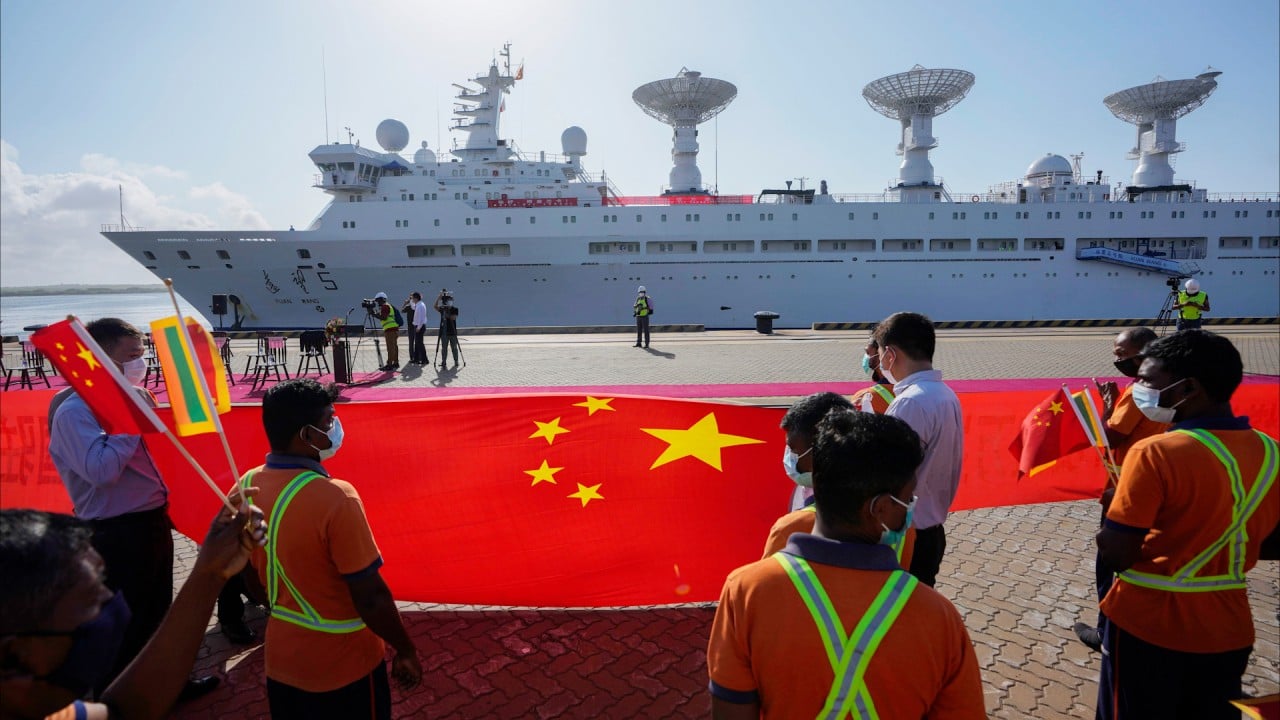
Putin says China’s belt and road plan isn’t a bid to conquer but a ‘desire for cooperation’
- Russian president tells Chinese state broadcaster that the initiative ‘fully coincides’ with Moscow’s vision for regional development
- Putin, who is expected to attend this week’s forum in Beijing, also says there is no coercion under the strategy ‘but opportunities’
“Some people view the Belt and Road Initiative as an attempt by China to conquer others, but that is not what we’ve seen – we see the desire for cooperation,” Putin said in the interview, which aired on Sunday.
“We welcome President Xi’s plan and are willing to work with China to implement the initiative. Our own vision of developing the Eurasian Economic Union, for example, to build the ‘Greater Eurasia’, fully coincides with China’s Belt and Road Initiative.”
The Eurasian Economic Union is a regional integration body made up of post-Soviet states Armenia, Belarus, Kazakhstan, Kyrgyzstan and Russia.

Putin is expected to travel to Beijing to attend the two-day forum – his first trip outside the former Soviet Union since The Hague-based International Criminal Court issued a warrant for his arrest in March for the war crime of unlawfully deporting Ukrainian children. The Kremlin denies the allegation.
Xi launched the Belt and Road Initiative in 2013 to expand China’s economic cooperation and connectivity with countries in Asia, Europe and beyond. Around 152 countries have since signed trade and infrastructure deals with China under the initiative.
But critics, including the US and major European countries, say the investment projects create debt burdens for recipient countries, ignore environmental concerns and labour rights, and that they only serve to expand Beijing’s influence abroad.
While China has rejected these accusations, it has said it will focus on “small and beautiful” projects rather than mega projects in the future.
In the interview, Putin said there was no coercion under the initiative, which was different from some “colonialist countries”.
“The best part of cooperations proposed by China is that within the cooperation framework, no one imposes anything on others,” he told CCTV.
“It is all about looking for solutions, projects and approaches that are acceptable to all parties to achieve a common goal,” he said.
“There is no imposition on each other nor coercion, but opportunities.”
Putin – who has met Xi more than 40 times since 2013 – called the Chinese leader “a firm, calm, practical and reliable partner”.
“As long as we reach an agreement, we can make sure both parties stick to it,” he said.
Xi has described their relationship as one of “best friends”. In March, they met in Moscow where they discussed areas including bilateral cooperation, the war in Ukraine and a peace plan proposed by Beijing.


